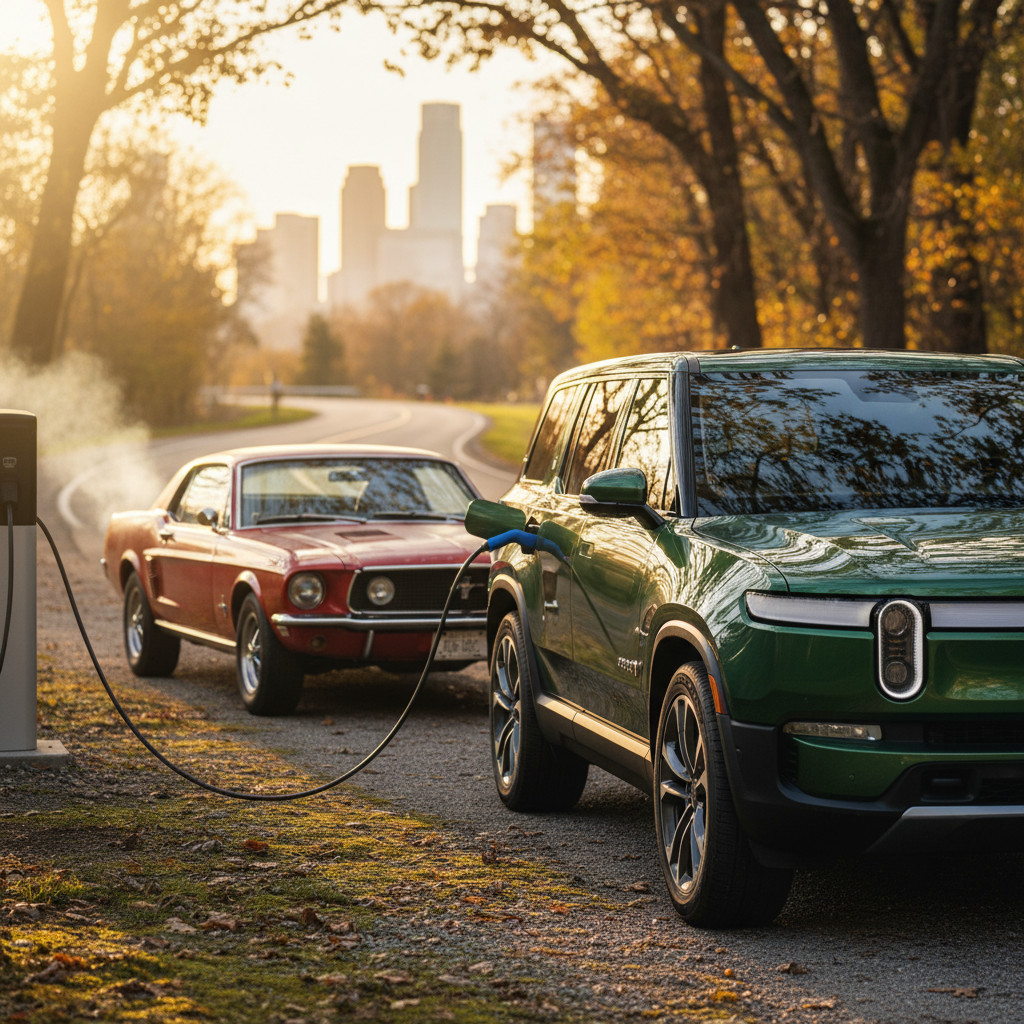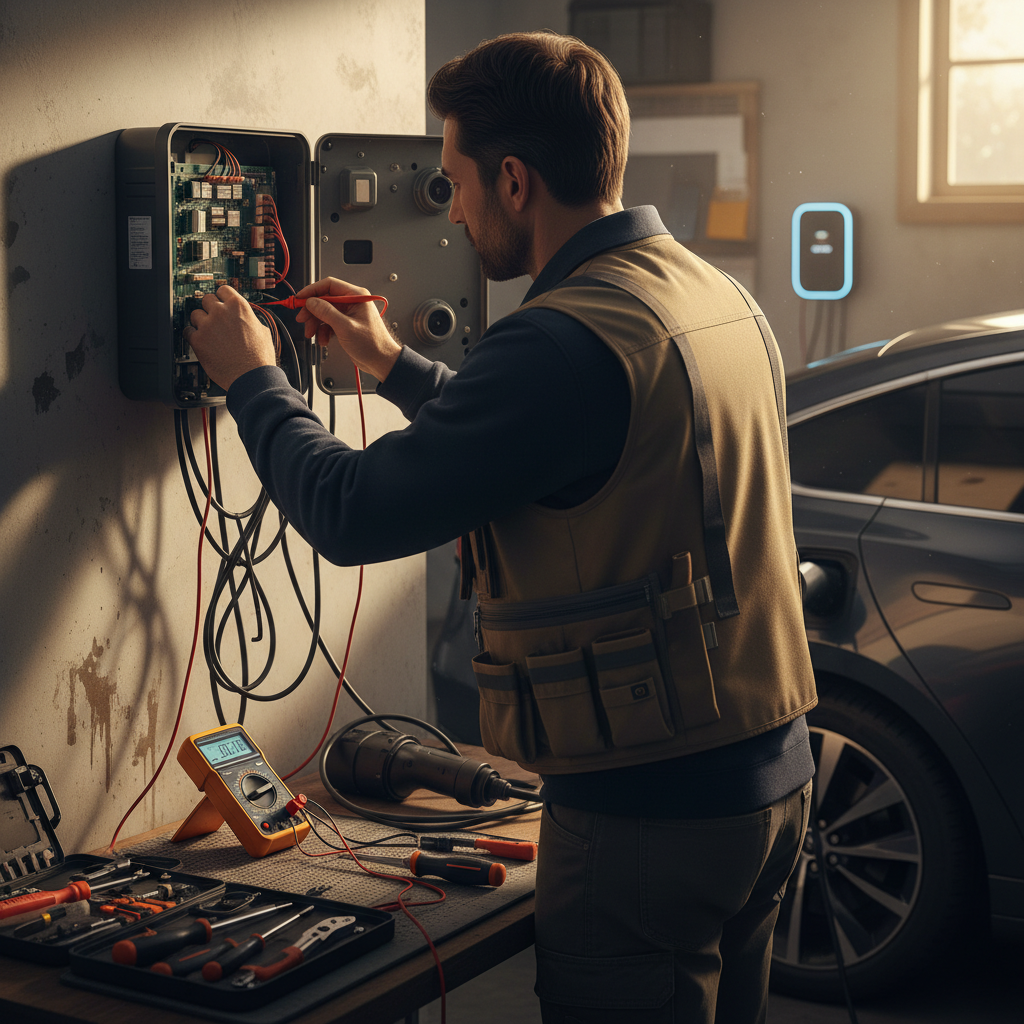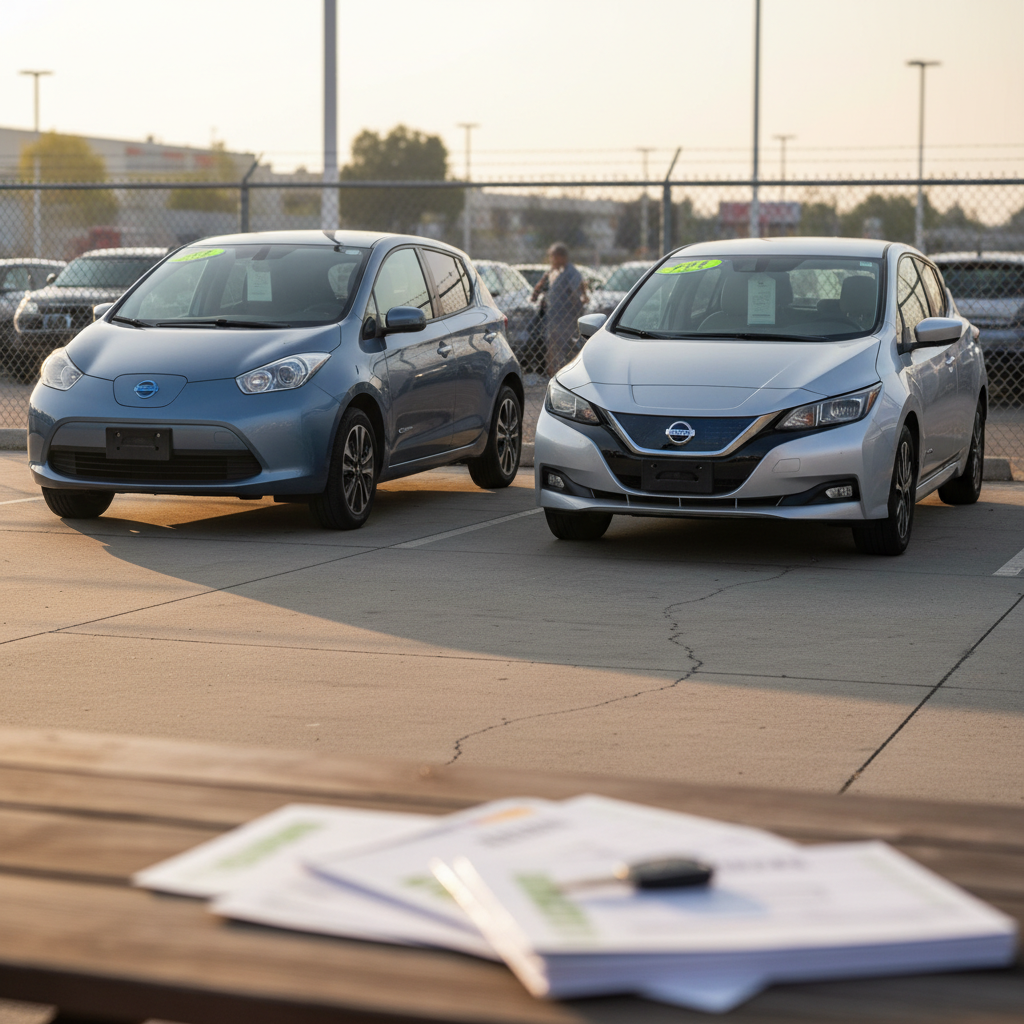If you’re shopping for your next car in 2025, it’s natural to ask: are electric cars really better than gas cars, or is it mostly hype? The truth is more nuanced. In some areas EVs are clearly ahead; in others, gas still has an edge. This guide walks through cost, emissions, performance, reliability, and day‑to‑day convenience so you can decide what’s better for how you actually drive.
Quick answer
Electric vs. gas cars at a glance
Key numbers: electric cars vs gas cars in 2025
A note on averages
Are electric cars cheaper to own than gas cars?
Sticker price and monthly payment are where many shoppers start, but the better question is total cost of ownership: purchase price, financing, fuel, maintenance, repairs, insurance, taxes, and resale value over time. Here, EVs and gas cars trade blows.
Upfront price vs running costs
Why EVs can cost more to buy but less to run
Upfront purchase price
New electric cars still tend to cost more than comparable gas models. Industry data through 2024 shows average new EV prices running roughly 10–15% higher than gas cars, even after significant price drops.
Federal and state incentives can narrow or erase that gap, but they depend on which model you buy and your household income. Many entry‑level EVs and some luxury models qualify for thousands of dollars in tax credits, while others don’t.
Fuel and maintenance savings
Once you own the car, EVs usually win. At typical U.S. electricity rates, an EV can cost the equivalent of $1–$1.50 per “gallon” of energy when charged at home, versus gasoline often in the $3+ range.
Maintenance is also lower: no oil changes, fewer fluids, no exhaust system, and greatly simplified transmissions. Over five years and 75,000 miles, that can translate into hundreds or even thousands of dollars in savings compared with a gas car.
Typical 5‑year cost comparison (simplified example)
Illustrative example for a mainstream compact SUV, assuming 15,000 miles per year. Real‑world costs vary by model, location, and incentives.
| Category | Electric SUV | Gasoline SUV |
|---|---|---|
| Purchase price (MSRP) | $48,000 | $40,000 |
| Potential incentives | −$7,500 | $0 |
| Net purchase (before tax/fees) | $40,500 | $40,000 |
| 5‑year fuel/energy cost* | ≈$3,400 | ≈$11,000 |
| 5‑year maintenance (scheduled) | Lower | Higher |
| 5‑year depreciation | Higher on many EVs | More predictable |
| Overall 5‑year cost | Often similar or slightly lower | Often similar or slightly higher |
EVs often cost more up front but can claw back much of that difference in fuel and maintenance if you drive enough and charge mostly at home.
Run your own numbers
Recent cost‑of‑ownership analyses show a split picture: for roughly 4 in 10 current EV models, five‑year ownership costs are already lower than comparable gas cars, especially when you include available tax credits and home charging. For the rest, higher purchase prices and faster depreciation still keep total costs a bit higher than gas. In other words, some EVs are clear bargains; others are still early‑adopter purchases.
What about tax credits after 2025?
Are electric cars better for the environment?
On environmental impact, electric cars have pulled decisively ahead. Yes, building an EV, especially the battery, takes more energy and generates more emissions than building a gas car. But once you start driving, EVs quickly catch up and then keep winning.
- Lifecycle emissions: Multiple independent studies now find that, on average, EVs emit roughly 40–60% less greenhouse gas over their full life cycle than comparable gasoline vehicles, even on today’s mixed power grid.
- Payback time: Because EVs emit far less while driving, it typically takes only one to two years of normal driving for an EV to “pay back” the extra emissions from battery manufacturing and become cleaner overall.
- Grid gets cleaner over time: As more wind, solar, and other renewables are added, the same EV automatically becomes cleaner each year. A gas car’s tailpipe, by contrast, never improves.
- Local air quality: EVs produce no tailpipe pollution on city streets, which helps reduce smog‑forming emissions and improves air quality where people actually live and breathe.

Reality check on “zero emissions”
Performance: which is more fun to drive?
If you care about how a car feels from behind the wheel, electric cars are already ahead of most gas models. Instant torque, smooth acceleration, and quiet operation change the driving experience more than spec sheets suggest.
Driving feel: EV vs gas
Where electric cars shine, and where gas still wins
Acceleration
Even affordable EVs leap off the line thanks to instant torque. Many mainstream models match or beat gas cars that cost much more. For highway merging, passing, and on‑ramps, that responsiveness makes daily driving feel easier and safer.
Noise & smoothness
With no engine revs and no gear shifts, EVs feel quiet and seamless. For long commutes or stop‑and‑go traffic, the low noise level and lack of vibration can make a big difference in fatigue.
Towing & heavy loads
Gas and diesel trucks still have the edge for long‑distance towing. Electric trucks can tow impressive weights, but their range can drop dramatically with a trailer attached, and fast‑charging while towing is less convenient.
EVs shine in everyday driving
Range, charging and everyday convenience
Range and charging are where many shoppers hesitate. Gas cars are simple: find a station, fill up in a few minutes, keep going. EVs ask you to think about where you’ll charge most of the time and how often you drive beyond your daily routine.
Range: how far can you go?
Most new EVs in 2025 offer 250–300 miles of EPA‑rated range, with some luxury models pushing well past 350–400 miles. In practice, real‑world range is usually 10–20% lower due to weather, speed, and cargo.
For the average U.S. driver, who travels about 30–40 miles a day, that means charging a few times a week at home, not every night. Gas cars still offer longer range and faster refill times, which matters if you drive long distances frequently.
Charging: home vs public
Home charging is the killer feature of EV ownership. With a Level 2 charger in your garage or driveway, you plug in, go to bed, and wake up to a “full tank” almost every morning.
Public charging is improving quickly, with tens of thousands of stations and Tesla opening more Superchargers to other brands. But fast‑charging is still less consistent than gas stations, and charging on the road takes longer than refueling a gas car.
Ask yourself this question first
Checklist: are you ready for an EV today?
1. Do you have regular overnight parking?
A garage, carport, or dedicated driveway spot makes home charging far easier. If you rely on street parking, look for workplace charging or reliable public options nearby.
2. Can you add a 240‑volt outlet or wall charger?
Many homes can add a 240‑volt circuit for Level 2 charging. You’ll need an electrician to confirm panel capacity and quote installation costs.
3. How often do you road‑trip?
If you usually stay within 50–100 miles of home and only road‑trip a few times a year, current EV ranges will likely feel comfortable. Weekly multi‑state drives or heavy towing are still better suited to gas, or a plug‑in hybrid.
4. What are local electricity and gas prices?
In regions with cheap electricity and high gas prices, EVs are clear winners. Where electricity is expensive and gas is cheap, the savings are smaller but often still positive.
5. Is your household multi‑car or single‑car?
If you have two cars, making one an EV and keeping one gas can be a low‑risk way to learn how EV ownership fits your life.
Reliability, battery life and resale value
Reliability is where perception and reality diverge. EV technology has matured rapidly, but some early models and brand‑new startups have had more than their share of glitches. At the same time, the core EV drivetrain is mechanically simpler than a gas powertrain.
What we know so far about EV longevity
Separating early‑adopter headaches from long‑term trends
Mechanical simplicity
EVs eliminate many of the parts that commonly fail on gas cars: no timing belt, spark plugs, fuel injectors, or multi‑gear automatic transmissions. Fewer moving parts generally mean fewer mechanical failures as the fleet ages.
Electronics & software issues
Surveys still show EVs averaging more problems per vehicle than comparable gas cars, mainly due to infotainment glitches, advanced driver‑assistance quirks, and new tech features. As models mature, these issues tend to decline, but they’re worth noting if you prefer a "set‑and‑forget" vehicle.
On battery life specifically, large real‑world datasets and academic research from the last few years point in a reassuring direction. Many modern EV batteries are projected to last well over a decade with normal use, often retaining 70–80% of their capacity after hundreds of thousands of miles. Recent studies from Europe suggest EV lifespans are now roughly comparable to, or slightly better than, similar gas and diesel cars.
Battery replacement fear
Resale value is a mixed bag. Some high‑demand EVs hold value well; others have seen sharp price drops as new models arrive, prices fall, and incentives shift. The upshot: depreciation can be steeper on EVs today, but that also creates opportunities for value‑conscious used buyers.
Used electric cars vs used gas cars
If you’re shopping used, the EV vs gas question looks a bit different. Depreciation has already done its work, and the biggest question becomes: what kind of shape is the battery in? That’s where transparency matters.

Why used EVs can be excellent deals
- Lower purchase price: Steep early depreciation means you may pay far less than original MSRP.
- Low running costs: You still benefit from cheaper energy and reduced maintenance.
- Less wear and tear: Many used EVs come from city or commuter duty cycles with relatively gentle use.
Risks to watch for
- Unknown battery health: Range loss from degradation isn’t always obvious from the outside.
- Out‑of‑date tech: Older EVs may lack current fast‑charging speeds or software features.
- Warranty status: Check how much remains on the battery and drivetrain warranty.
How Recharged helps with used EVs
So…who should choose electric vs gas?
When you put it all together, asking “are electric cars better than gas cars” is a little like asking whether a pickup is better than a minivan. It depends on what you need it to do. Here’s a quick way to think about it.
Best fit by driver type
EV is likely better for you if…
You can charge at home or work most nights.
You drive mainly in town or on predictable routes, with road‑trips a few times a year.
You care a lot about emissions, quietness, and smooth performance.
You plan to keep the car long enough to benefit from lower fuel and maintenance costs.
You’re comfortable using apps to find and activate public chargers when needed.
Gas (or hybrid) is likely better for you if…
You can’t reliably charge at home and don’t have workplace charging.
You often drive long distances in rural areas with limited charging infrastructure.
You tow heavy loads frequently and value maximum range under load.
You prioritize fast refueling above all else.
You prefer a simpler ownership experience today and may switch to an EV later as infrastructure and prices improve.
Don’t overlook hybrids and plug‑in hybrids
Frequently asked questions about electric vs gas cars
FAQ: are electric cars better than gas cars?
Bottom line: are electric cars better than gas cars?
Taken as a whole, electric cars are already better than gas cars for a large and growing share of U.S. drivers, especially those with home charging, predictable daily driving, and an eye on long‑term costs and emissions. They deliver smoother performance, lower operating costs, and dramatically cleaner lifetime emissions than traditional internal‑combustion vehicles.
Gas cars still make sense if you routinely travel long distances, tow heavy loads, or lack any realistic way to charge where you live or work. Hybrids and plug‑in hybrids offer strong middle‑ground options, particularly while charging infrastructure continues to expand.
If you’re curious how an EV might work for you, exploring the used EV marketplace at Recharged is a low‑risk way to start. With verified battery health, transparent pricing, financing options, and nationwide delivery, you can compare electric and gas alternatives side by side and choose the one that really is “better” for the way you drive.



